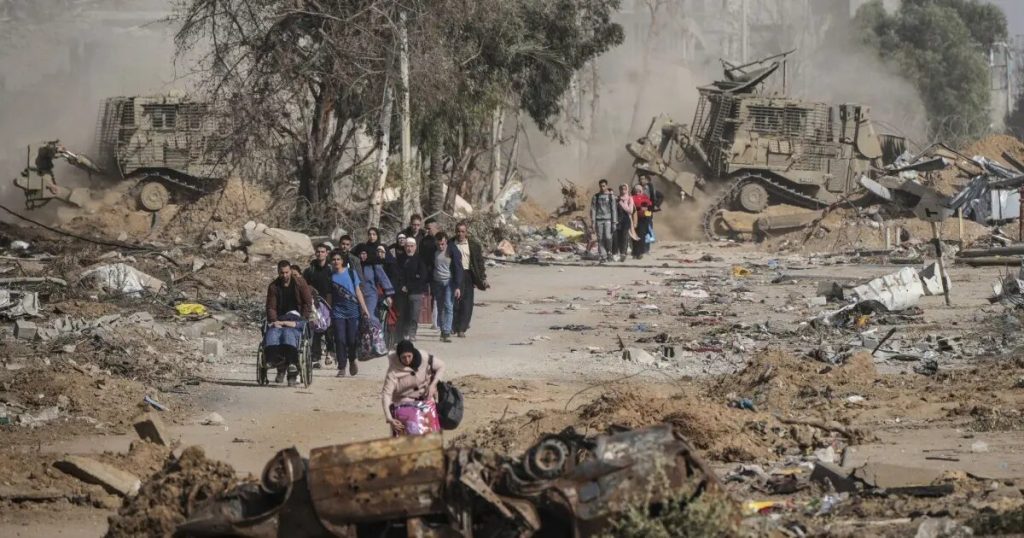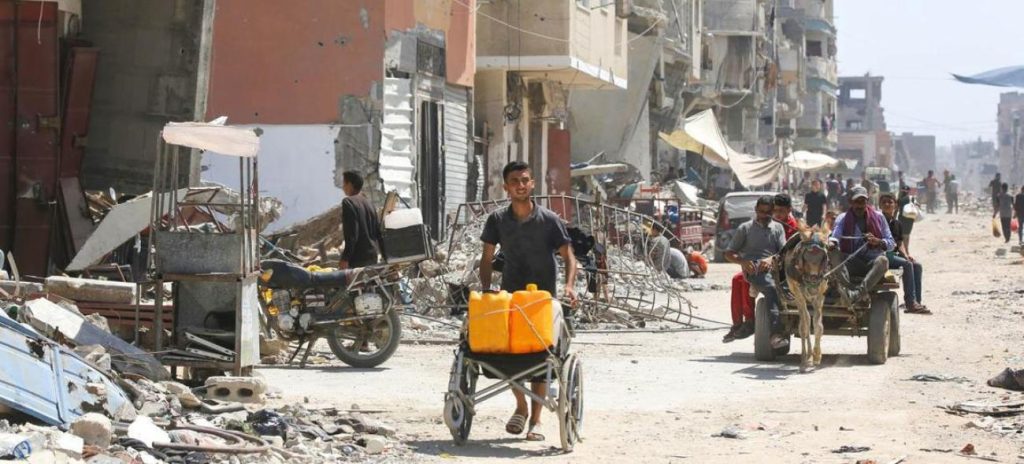Introduction to the Crisis
The Office for the Coordination of Humanitarian Affairs (OCHA) actively warns that mass evacuations in Gaza continue without ensuring safe alternatives for displaced residents. Recent conflict has exacerbated this crisis, leaving thousands in precarious conditions.
The Scale of Displacement
The Israeli military issues evacuation orders, affecting thousands of families. For instance, between January 1 and 3, 2025, they ordered evacuations for parts of Gaza City and North Gaza. Consequently, residents face uncertainty as they flee without clear destinations.

Humanitarian Challenges
Aid workers actively struggle to deliver supplies due to restrictions imposed by authorities. They operate bakeries at reduced capacity and cut rations themselves. Meanwhile, the World Health Organization (WHO) emphasizes the urgent need for medical evacuations as they work to save over 12,000 critically ill patients trapped in Gaza.
Furthermore, humanitarian teams work tirelessly to find solutions. They push for more supplies to reach those in need, despite the obstacles they encounter.
Impact on Civilians
Civilians, especially children, suffer severely from the conflict. More than 13,000 children have been killed, and many are injured or separated from their families. Authorities destroy critical infrastructure, leaving the population vulnerable to public health risks.

International Response
The international community actively expresses deep concern over the crisis. The United Nations High Commissioner for Refugees (UNHCR) highlights the killings of Palestinians in “buffer zones” since the ceasefire began. Moreover, NGOs actively fill gaps in service provision, but they face significant challenges in doing so.
Call to Action
As the situation in Gaza continues to unfold, international attention must focus on ensuring the safety and dignity of those displaced. OCHA’s reports underscore the urgent need for safe alternatives and the immediate resumption of humanitarian aid. Therefore, the international community must act swiftly to address these pressing concerns and work towards a sustainable resolution.

